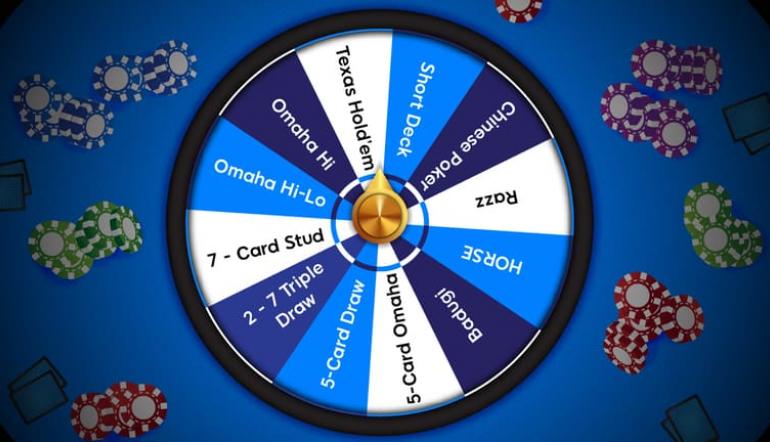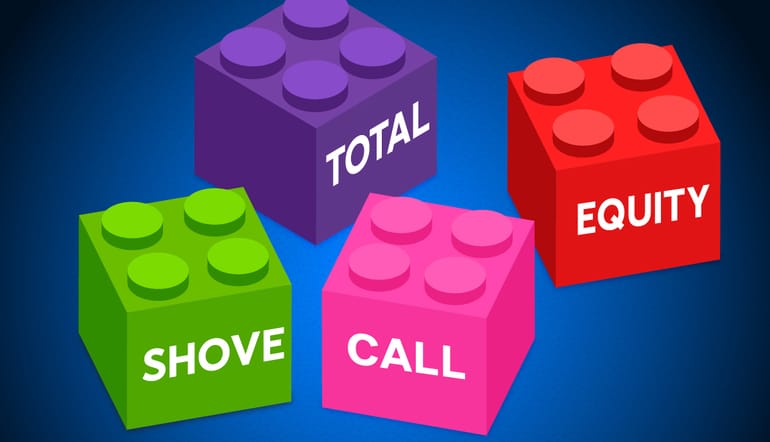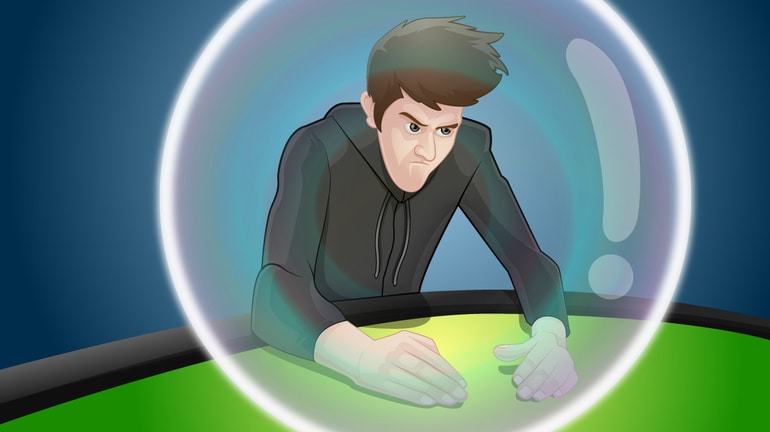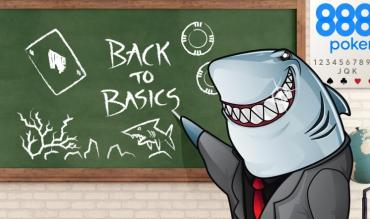All poker players need to start their career somewhere. For many of us, this means the micro stakes. Unfortunately, despite being the lowest limit games online, a positive win rate is not a given.
- It takes some skill and discipline to come out on top, even if the standard of play is relatively weak.
We don’t just need to be better than our opponents to win. We need to be far enough ahead that we can still profit after paying rake.
The good news is that with a little hard work and dedication, the micro-stakes games are beatable.
We’ve compiled a list of top tips to help you make that goal a reality.
Table of Contents
- Have a professional attitude
- Learn the rules thoroughly
- Create a bankroll management strategy
- Create a playing schedule
- Select your games carefully
- Use opponent profiling
- Use a tracker
- Use additional poker tools
- Access training content
- Work with others
- Train your mindset
- Stay off tilt
- Stay healthy
- Remove distractions
- Love the game
1. Have a Professional Attitude
If we only had room for one top tip, it would be to have a professional attitude. All the other tips on the list tie into this crucial idea in one way or another.
To get the best possible result, we want to stop thinking of poker as just a game. Instead, treat our poker play in the same way we’d treat running a small business.
After making this fundamental shift in the way we think about poker, the other tips on this list will start to come to us more naturally.
- After all, a game is just about having fun, but a business is about making money.
2. Learn the Rules Thoroughly
We are not just talking about the basic flow of action but the finer details of whichever poker variant we learn.
 Learn the Rules Thoroughly
Learn the Rules Thoroughly
For example, a new Hold’em player might know the basic rules of poker but misread his hand in a typical scenario involving counterfeiting.
- Imagine Hero holds JQ on the JQ225 board and can’t understand why he just lost to his opponent’s KK.
- Knowing the rules is especially critical in more complex poker variants such as Omaha and Omaha Hi/Lo.
It’s amazing how much basic hand misreading goes on in these variants simply because a player doesn’t understand the rules.
For example, an Omaha player holds AhKsTcJc and can’t understand why he doesn’t have a heart flush on the 5h6hTh2h4c runout.
3. Create a Bankroll Management Strategy
Poker is not just about the way we play while actually at the tables. Our off-table decisions are also crucial. We need to play in games that make the most sense, given our skill level and the size of our bankroll.
There is a balancing act required here –
- Play too aggressively with our bankroll, and we risk the possibility of losing everything after going on a bad run.
- Play too tight with our bankroll, and our progress moving up the stakes will become painfully slow. (We may get to the point where we never reach our goals.)
Many players are aware that playing a game without the correct bankroll is a mistake.
But far fewer realise that playing too small a game for our bankroll is also a costly mistake.
4. Create a Playing Schedule
If we think about how most jobs work, employees don’t just show up at random times and work for however long they feel (at least, not in most jobs).
The results of such an approach would probably be erratic at best. And yet, this is precisely how many players approach poker.
Better results can be achieved by adhering to a playing schedule. It’s recommended to plan out exactly how many hours per week we will play and at which times.
- This process builds discipline (an essential characteristic for poker players). It’s also likely to boost our overall volume (and hence earnings).
5. Select Your Games Carefully
 Select Your Games Carefully
Select Your Games Carefully
Remember how we said off-table decisions are crucial?
- Playing in the right games can make the difference between a loser and a big winner.
The goal of a successful poker player is not generally to butt heads with other good players. Instead, it’s to take money off the recreational players at the table.
We should aim to do the following –
- Select a poker room with the softest tables.
- Select tables with the softest opponents.
Of course, these are not the only factors. We should also consider other variables such as the rake fees.
6. Use Opponent Profiling
Poker is not just a game of cards; it’s a game of people. The type of opponent we are playing against often has a more significant impact on our decision than the cards we hold.
- Grouping our opponents into different categories based on their playing style is known as opponent profiling.
Any time we sit down at a table, we should actively try and get a feel of our opponents’ view on poker and how best we can exploit their playing style.
7. Use a Tracker
A poker ‘tracker’ is a piece of software that records our results and analyses our own frequencies and tendencies.
We’d never run a business without keeping transaction logs. So, it doesn’t make sense to play poker without keeping track of our profit and losses.
- This critical activity separates a recreational player from a poker professional.
Using some sort of poker tracking software is highly recommended.
8. Use Additional Poker Tools
 Use Poker Tools – Equity Calculators/ Solvers
Use Poker Tools – Equity Calculators/ Solvers
A tracker is just one example of a piece of software that poker players use. There are many other types of poker software that help us to make improvements.
- One common type of poker software is the equity calculator. These can calculate how much pot equity our hand or range has against our opponent’s range of holdings.
- Another common type of poker software is the solver. These calculate GTO (game theory optimal) strategies based on a given game tree.
It makes sense to familiarise ourselves with the available tools and decide what we’ll make use of to augment our progress.
9. Access Training Content
Poker is a beatable game. And there are winning players out there willing to share their strategy insights through training videos and books.
- It’s not uncommon for winning poker players to subscribe to a poker training site and use the videos to work on their game daily.
If we prefer to read, there are many books and forums out there that can improve our understanding of strategy.
10. Work With Others
There are undoubtedly some lone wolves in the poker world. But most players get good at the game through collaboration with others.
- A common activity is to meet together with fellow poker players and form a study group. These study groups will then meet using a third-party app such as Skype or Discord.
Another way to work with others is by hiring a private coach. Although poker coaches are notoriously expensive, it is potentially the easiest way to get good at poker - fast.
The investment will pay off over time when we start raking in the profits.
11. Train Your Mindset
Having a good mental state is not something that happens by accident. There is a whole field of study into the psychology behind peak performance.
It’s also something that a good poker player will specifically dedicate time towards improving.
As the poker games get more challenging, more and more players are realising the following –
- A mediocre player with a great mindset will often make money. In contrast, a great player with a poor mindset will nearly always be losing.
There are books, videos and private coaching services solely dedicated to improving the mental aspect of playing poker.
If we are serious about succeeding with poker, we’ll definitely spend some time on our mental game.
12. Stay off Tilt
 Stay off Tilt
Stay off Tilt
Tilt is the poker term for playing terrible, overly emotional poker. This situation often happens after catching a string of bad beats over time.
Being ‘on tilt’ means that our mindset training (the previous tip) has some blind spots that need improvement.
It’s essential to avoid playing tilted at all costs based on the following scenarios –
- If we have worked hard on our mindset training, we might recover from our tilt quickly using mental game techniques.
- If we can’t recover from our tilt, we need to quit the poker session as soon as possible.
Entire bankrolls have been lost because a tilted player couldn’t find the strength to quit when down several stacks.
Some players choose to set a stop loss limit which means we quit the session after losing a designated number of stacks - no matter what.
13. Stay Healthy
We’d probably laugh at the idea of a high-level athlete who didn’t stay healthy but then expected to perform at his best during the Olympic Games.
Poker is precisely the same, although it might not be obvious at first. We don’t use our physical muscles like an Olympic athlete, but we, instead, use our brain.
- However, our brain needs the same resources as our physical muscles.
A well-balanced regimen of exercise, sleep and a healthy diet will ensure that our thought processes are as powerful and efficient as possible.
Playing poker without enough sleep or on a poor diet is a virtual guarantee that we will not be playing our best at the tables.
14. Remove Distractions
Even if we are doing everything else on this list, it’s still critical that we are playing poker in an atmosphere conducive to focus.
 Remove Distractions
Remove Distractions
Notifications in our taskbar, phone or watch can distract us from the game and disrupt our thought processes. It can also be good to let those who live with us know that we don’t want to be distracted at particular times.
- Being distracted at a critical moment by a well-intentioned interruption could be the difference between a winning and losing session.
It usually makes sense to have some water and snacks nearby. That way, we don’t have to leave our session unnecessarily.
15. Love the Game
So many players get into poker purely for the prospects of making what they imagine will be ‘easy money’. When they realise that poker is hard, they give up at the first sign of any resistance.
After all, they never liked poker that much anyway, and it’s not the easy money they thought it would be.
- If we, instead, play poker because we love poker, we’ll have the fortitude to withstand the ups and downs.
When we are going through a rough patch of variance, we’ll find ways to work on our game. We have already decided that we are in it for the long haul.
It’s the players that love the game that nearly always make it, whether it takes 6 months or 20 years.
Summary - Crushing the Micros
If we address every point on this list and apply it to our game, we’ll likely start seeing profits at the micro stakes in no time.
If we were to distil the entire list down to two crucial tips, it would be the first and the last.
1. Have a Professional Attitude
15. Love the Game
Once we have these two core components in place, the rest will follow.


